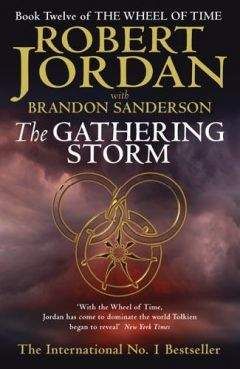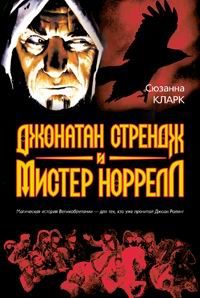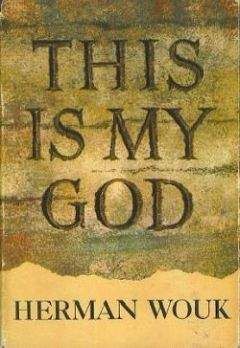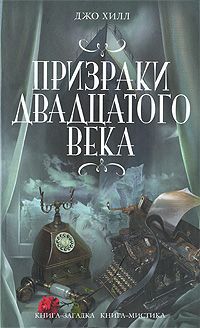Abercrombie, Joe - The Heroes
Calder snapped open the battered eyeglass his father used to use and peered westwards, up that slope covered with old stumps, past the woodcutters’ sheds and towards the shadowy trees beyond. Were they crawling with Union soldiers, ready to charge across the shallow water as soon as they saw him move? There was no sign of men there. Not even a glint of steel among the trees. Could it be a trick?
Should he keep his promise, charge to his brother’s aid and risk offering the whole army’s bare arse to the enemy? Or stay behind the wall and leave Scale the one with his backside in the breeze? That was the safe thing, wasn’t it? Hold the line. Prevent disaster. Or was he only telling himself what he wanted to hear? Was he relieved to have found a way to avoid fighting? A way to get rid of his idiot older brother? Liar, liar, he didn’t even know when he was telling himself the truth any more.
He desperately wanted someone to tell him what to do. He wished Seff was with him, she always had bold ideas. She was brave. Calder wasn’t made for riding to the rescue. Hanging back was more his style. Saving his own skin. Killing prisoners. Not doing it himself, of course, but ordering it done. Poking other men’s wives while they were doing the fighting, maybe, if he was really feeling adventurous. But this was a long way outside his expertise. What the hell should he do?
‘What’s going on?’ asked Pale-as-Snow. ‘The men are—’
‘The Union are in the woods on the other side of that stream!’
There was a silence, in which Calder realised he’d spoken far louder than he needed to.
‘The Union’s over there? You sure?’
‘Why haven’t they come already?’ White-Eye wanted to know.
Calder held up the paper. ‘Because I’ve got their orders. But they’ll get more.’
He could hear the Carls around him muttering. Knew they were passing the news from man to man. Probably that was no bad thing. Probably that was why he’d shouted it.
‘What do we do, then?’ hissed White-Eye. ‘Scale’s waiting for help.’
‘I know that, don’t I? No one knows that better than me!’ Calder stood frowning towards the trees, his free hand opening and closing. ‘Tenways.’ By the dead, he was clutching at dust now, running for help to a man who’d tried to have him murdered a few days before. ‘Hansul, get up to Skarling’s Finger and tell Brodd Tenways we’ve got the Union out there in the woods to the west. Tell him Scale needs him. Needs him now, or we’ll lose the Old Bridge.’
Hansul raised an eyebrow. ‘Tenways?’
‘Dow said he should help, if we needed it! We need it.’
‘But—’
‘Get up there!’
Pale-as-Snow and Hansul traded a glance. Then White-Eye clambered back up onto his horse and cantered off towards Skarling’s Finger. Calder realised everyone was watching him. Wondering why he hadn’t done the right thing already, and charged to his brother’s rescue. Wondering whether they should stay loyal to this clueless idiot with the good hair.
‘Tenways has to help,’ he muttered, though he wasn’t sure who he was trying to convince. ‘We lose that bridge and we’re all in the shit. This is about the whole North.’ As if he’d ever cared a damn about the whole North, or even anyone much further away than the end of his own foot.
His patriotic bluster carried no more weight with Pale-as-Snow than it did with him. ‘If the world worked that way,’ said the old warrior, ‘we’d have no need for swords in the first place. No offence, Calder, but Tenways hates you like the plague hates the living, and he doesn’t feel a whole stretch warmer towards your brother. He won’t put himself or his men on the line for your sakes, whatever Dow says. If you want your brother helped, I reckon you’ll have to do it yourself. And soon.’ He raised his white brows. ‘So what do we do?’
Calder wanted very much to hit him, but he was right. He wanted to hit him because he was right. What should he do? He lifted his eyeglass again and scanned the treeline, slowly one way, then the other, then stopped dead.
Did he catch, just for a moment, the glint of another eyeglass trained on him?
Corporal Tunny peered through his eyeglass towards the drystone wall. He wondered if, just for an instant, he caught the glint of another trained on him? But probably he’d just imagined it. There certainly wasn’t much sign of anything else going on.
‘Movement?’ squeaked Yolk.
‘Nah.’ Tunny slapped the glass closed then scratched at his increasingly stubbly, greasy, itchy neck. He’d a strong feeling something other than him had taken up residence in his collar. A decision hard to understand, since he’d rather have been pretty much anywhere else himself. ‘They’re just sitting there, far as I can tell.’
‘Like us.’
‘Welcome to the glory-fields, Trooper Yolk.’
‘Still no damn orders? Where the hell has bloody Lederlingen got to?’
‘No way of knowing.’ Tunny had long ago given up feeling any surprise when the army didn’t function quite as advertised. He glanced over his shoulder. Behind them, Colonel Vallimir was having another one of his rages, this time directed at Sergeant Forest.
‘Yolk leaned in to whisper, ‘Every man shitting on the man below, Corporal?’
‘Oh, you’re developing a keen sense of the mechanisms of his Majesty’s forces. I do believe you’ll make a fine general one day, Yolk.’
‘My ambition don’t go past corporal, Corporal.’
‘I think that’s very wise. As you can tell.’
‘Still no orders, sir,’ Forest was saying, face screwed up like a man looking into a stiff wind.
‘Bloody hell!’ snapped Vallimir. ‘It’s the right time to go! Any fool can see that.’
‘But … we can’t go without orders, sir.’
‘Of course we bloody can’t! Dereliction of duty, that’d be! But now’s the right time, so of course General bloody Mitterick will be demanding to know why I didn’t act on my own initiative!’
‘Very likely, sir.’
‘Initiative, eh, Forest? Initiative. What the bloody hell is that except an excuse to demote a man? It’s like a card game they won’t tell you the rules to, only the stakes!’ And on, and on, and on he went, just like always.
Tunny gave a sigh, and handed his eyeglass to Yolk.
‘Where you going, Corporal?’
‘Nowhere, I reckon. Absolutely nowhere.’ He wedged himself back against his tree trunk and dragged his coat closed over him. ‘Wake me if that changes, eh?’ He scratched his neck, then pulled his cap down over his eyes. ‘By some miracle.’
Closing Arguments
It was the noise that was the most unexpected thing about battle. It was probably the loudest thing Finree had ever heard. Several dozen men roaring and shrieking at the very highest extent of their broken voices, crashing wood, stamping boots, clanging metal, all amplified and rendered meaningless by the enclosed space, the walls of the room ringing with mindless echoes of pain, and fury, and violence. If hell had a noise, it sounded like this. No one could have heard orders, but it hardly mattered.
Orders could have made no difference now.
The shutters of another window were bludgeoned open, a gilded cupboard that had been blocking them flattening an unfortunate lieutenant and spewing an avalanche of shattering dress crockery across the floor. Men swarmed through the square of brightness, ragged black outlines at first, gaining awful detail as they burst into the inn. Snarling faces smeared with paint, and dirt, and fury. Wild hair tangled with bones, with rough-carved wooden rings and rough-cast metal. They brandished jagged axes and clubs toothed with dull iron. They wept and gurgled a mad clamour, eyes bulging with battle-madness.
Aliz screamed again, but Finree felt oddly cold-headed. Perhaps it was some kind of beginner’s luck at bravery. Or perhaps it had yet to really dawn on her how bad things were. They were very, very bad. Her eyes darted around as she struggled to take it all in, not daring to blink in case she missed something.
In the middle of the room an old sergeant was wrestling with a grey-haired primitive, each holding the other’s wrist with weapons waggling at the ceiling, dragging each other this way and that as though through the steps of some drunken dance, unable to agree on who should be leading. Nearby one of the violinists was beating at someone with his shattered instrument, reduced now to a tangle of strings and splinters. Outside in the courtyard the gates were shuddering, splinters flying from their inside faces while guardsmen tried desperately to prop them shut with their halberds.
She found herself rather wishing that Bremer dan Gorst was beside her. Probably she should have wished for Hal instead, but she had a feeling courage, and duty, and honour would do no good here. Brute strength and rage were what was needed.
She saw a plump captain with a scratch down his face, who was rumoured to be the bastard son of someone-or-other important, stabbing at a man wearing a necklace of bones, both of them slick with red. She saw a pleasant major who used to tell her bad jokes when she was a girl clubbed on the back of the head. He tottered sideways, knees buckling like a clown’s, one hand fishing at his empty scabbard. He was caught with a sword and flung to the floor in a shower of blood. Another officer’s backswing, she realised.
‘Above us!’ someone screamed.
The savages had somehow got up onto the gallery, were shooting arrows down. An officer just next to Finree slumped over a table with a shaft in his back, dragging one of the hangings down on top of him, his long steel clattering from his dangling hand. She reached out nervously and slid his short steel from the sheath, backed away again towards the wall with it hidden beside her skirts. As though anyone would complain at a theft in the midst of this.
The door burst open and savages spilled into the common hall from the rest of the inn. They must have taken the courtyard, killed the guards. Men desperately trying to keep the attackers out from the windows spun about, their frozen faces pictures of horror.
‘The lord governor!’ someone screamed. ‘Protect his—’ Cut off in a snivelling wail.
The melee had lost all shape. The officers were fighting hard for every inch of ground but they were losing, forced grimly back into a corner, cut down one by one. Finree was shoved against the wall, perhaps by some pointless act of chivalry, more likely by the random movement of the fight. Aliz was next to her, pale and blubbing, Lord Governor Meed on the other side, in a state little better. All three of them jostled by men’s backs as they fought hopelessly for survival.
Finree could hardly see over the armoured shoulder of a guard, then he fell and a savage darted into the gap, a jagged iron sword in his fist. She got one quick, sharp look at his face. Lean, yellow-haired, splinters of bone pushed through the rim of one ear.
Meed held up a hand, breath whooshing in to speak, or scream, or beg. The jagged sword chopped into him between neck and collarbone. He took a wobbling step, eyes rolled up to the ceiling so the whites showed huge, tongue sticking out and his fingers plucking at the ragged wound while blood welled up from between them and down the torn braid on the front of his uniform. Then he crashed over on his face, catching a table on the way and knocking it half in the air, a sheaf of papers spilling across his back.
Aliz let go another piercing shriek.
The thought flashed through Finree’s mind as she stared at Meed’s corpse that this might all have been her fault. That the Fates had despatched this as the method of her vengeance. It seemed disproportionate, to say the least. She would have been happy with something considerably less—
‘Ah!’ Someone grabbed her left arm, twisted it painfully around, and she was staring into a leering face, a mouthful of teeth filed to points, one pitted cheek marked with a blue handprint and speckled red.
She shoved him away, he gave a whooping squeal and she realised she had the short steel in her hand, had rammed it into his ribs. He pressed her against the wall, wrenching her head up. She managed to drag the steel free, slippery now, work it between them, grunting as she pushed the point up into his jaw, blade sliding into his head. She could see the skin on his blue cheek bulge from the metal behind it.
He tottered back, one hand fishing at the bloody hilt under his jaw, left her gasping against the wall, hardly able to stand her knees were shaking so badly. She felt her head suddenly yanked sideways, a stab of pain in her scalp, in her neck. She yelped, cut off as her skull smacked—
Everything was bright for a moment.
The floor thumped her in the side. Boots shuffled and crunched.
‘Fingers around her neck.
She couldn’t breathe, plucked at the hand with her nails, ears throbbing with her own heartbeat.
A knee pressed into her stomach, crushing her against a table. Hot, foul breath blasted at her cheek. It felt as if her head was going to burst. She could hardly see, everything was so bright.
Then there was silence. The hand at her throat released a fraction, enough for her to draw in a shuddering breath. Cough, gag, cough again. She thought she was deaf, then realised the room had gone deathly quiet. Corpses of both sides were tangled up with broken furniture, scattered cutlery, torn papers, piles of fallen plaster. A few weak groans came from dying men. Only three officers appeared to have survived, one holding his bloody arm, the other two sitting with hands up. One was crying softly. The savages stood over them, still as statues. Nervous, almost, as if waiting for something.
Finree heard a creaking footstep in the corridor outside. And then another. As though some great weight was pressing on the boards. Another groaning footstep. Her eyes rolled towards the doorway, straining to see.
A man came through. The shape of a man, at least, if not the size. He had to duck under the lintel and then stayed suspiciously stooped, as if he was below decks in a small ship, scared of catching his head on low beams. Black hair streaked with grey stuck to his knobbly face with wet, black beard jutting, tangled black fur across his great shoulders. He surveyed the scene of wreckage with an expression strangely disappointed. Hurt even. As if he had been invited to attend a tea party and found instead a slaughter-yard at the venue.
‘Why is everything broken?’ he said in a voice oddly soft. He stooped to pick up one of the fallen plates, no more than a saucer in his immense hand, licked a fingertip and rubbed a few specks of blood from the maker’s mark on the back, frowning at it like a cautious shopper. His eyes lighted on Meed’s corpse, and his frown grew deeper. ‘Did I not ask for trophies? Who killed this old man?’
The savages stared at each other, eyes bulging in their painted faces. They were terrified, Finree realised. One raised a trembling arm to point at the man who was holding her down. ‘Saluc did it!’
The giant’s eyes slid across to Finree, then the man with his knee in her stomach, then narrowed. He put the plate on a gouged table, so gently it made no sound. ‘What are you doing with my woman, Saluc?’




